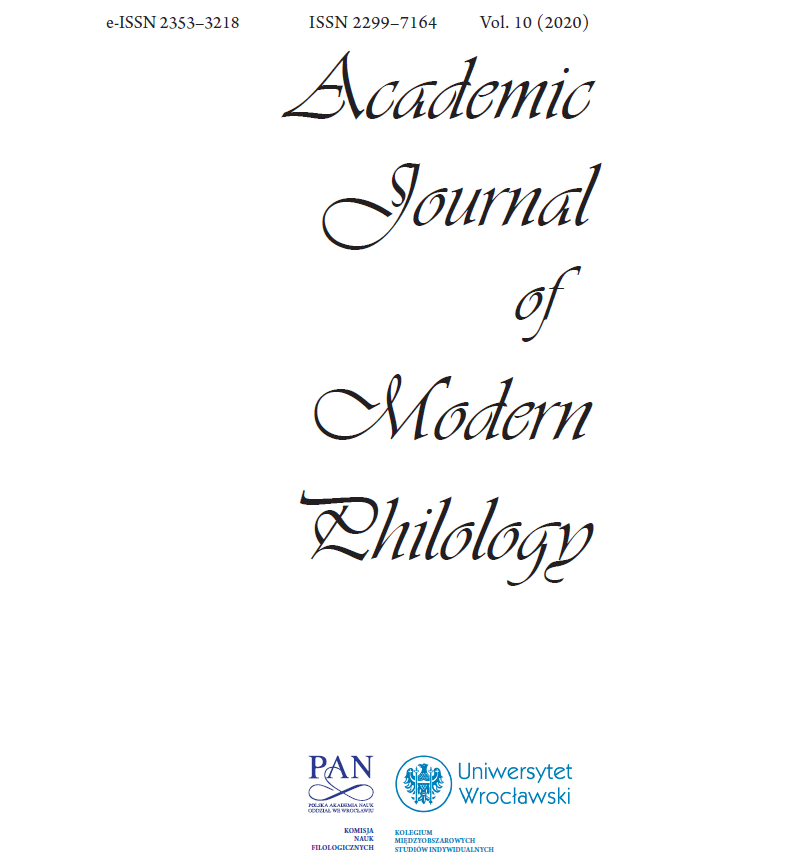Ichaussage und Autobiographie im englischen Mittelalter: Zwischen Konvention und Individualität
Self-Description and Autobiography in Medieval England
Author(s): Hans SauerSubject(s): Language and Literature Studies, British Literature
Published by: Komisja Nauk Filologicznych Oddziału Polskiej Akademii Nauk we Wrocławiu
Keywords: autobiography; mentioning one’s name; Old English; Middle English and medieval Latin literature; “Deor”; Chaucer; Hoccleve; Margery Kempe
Summary/Abstract: This article deals with autobiographical remarks and autobiographies written in medieval England, either by English authors or by authors who came to England (mainly from France), as well as by authors that were born in England but moved (or had to move) abroad (mainly to France). The survey is broad in that it takes not only Old and Middle English texts into account, but also relevant Latin texts. A wide range of material exists, from passages where authors simply mention their name to fully-fledged autobiographies, such as the Book of Margery Kempe, which is often regarded as the first genuine English autobiography. In another respect, my scope is narrower than that of some previous critics (especially Brandl and Misch): autobiographies by clearly fictitious characters such as Beowulf or the speakers in many of the Old English elegies are excluded. However, the borderline between the genuine and the fictitious is not always easy to draw. Therefore, I also briefly discuss the Old English elegy “Deor”, where the speaker mentions his name (Deor), but is nevertheless probably a fictitious character. It is also not always easy to decide where the autobiography describes real events and where the speaker uses or at least seems to use topoi, conventionalized images; but even a conventionalized image can express real events. There are several cases where the speaker describes himself as an old man, who repents the luxurious and sinful life which he led in his youth. Due to these and similar problems, scholars have not been able to identify some authors or characters, even if their names are mentioned. This applies to the Old English poet Cynewulf or to Nicholas of Guildford, who is referred to as a wise man at the end of the Early Middle English poem “Owl and Nightingale.” Chaucer is the only author who describes himself with a bit of clear self-irony – this confirms Chaucer’s exceptional status among the medieval English poets.
Journal: Academic Journal of Modern Philology
- Issue Year: 2020
- Issue No: 10
- Page Range: 207-222
- Page Count: 16
- Language: German

